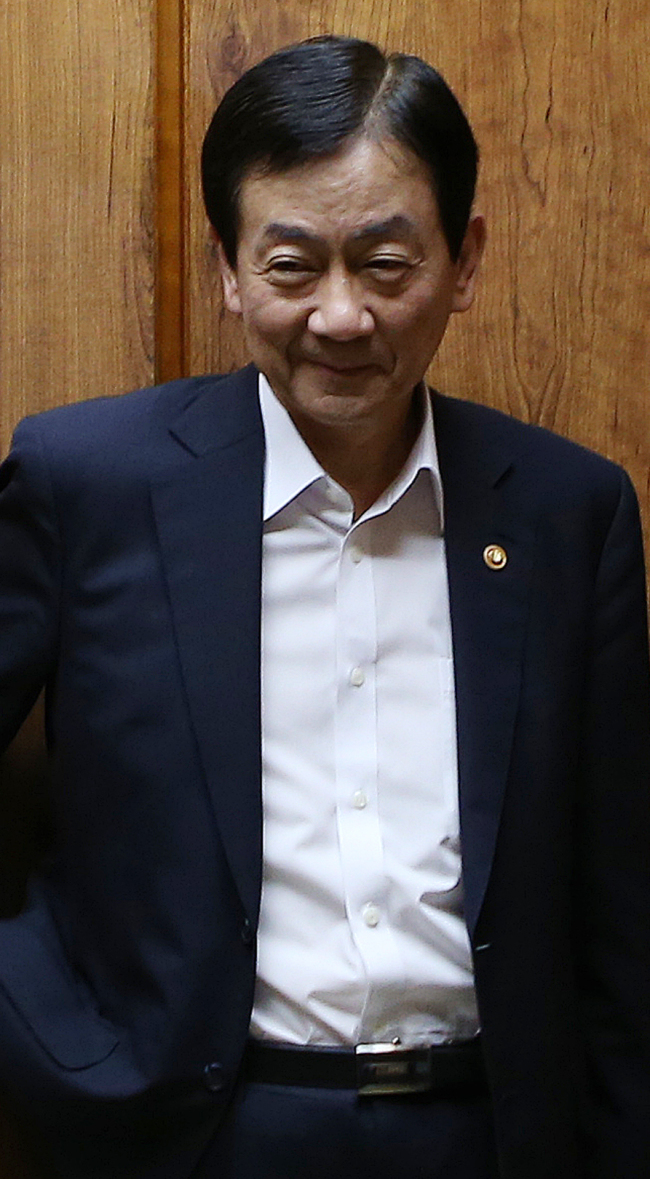When Chin Young, one of the closest allies of President Park Geun-hye and a passionate advocate of broader welfare, was appointed to head the Ministry of Health and Welfare in March, it was considered an indication of her government’s greater commitment to caring for the poor and underprivileged.
Six months later the minister is seeking to step down in what is seen as a symbol of the Park administration’s retreat in welfare and return to a growth agenda amid budget woes and a lackluster economy.
Chin was the core policy brain for Park during the presidential election and effectively ran the operations of Park’s transition committee as its deputy chief.
 |
Chin Young. (Yonhap News) |
The relationship between the president and Chin, a third-term lawmaker of the ruling Saenuri Party, has progressed on varied terrain over the years.
Their relationship goes back to 2004 when Park, then the chairwoman of the Grand National Party, picked Chin as her chief secretary despite there being no clear political alliance between the two. The Grand National Party has since been transformed into the Saenuri Party under Park’s leadership.
However, his time at the center of the pro-Park faction did not last long with Chin opting to follow his beliefs rather than power.
In 2007, when Park was running in the GNP’s presidential primaries, Chin declined to join her camp in light of his belief that incumbent lawmakers should not be involved in election camps.
Chin also sided with the pro-Lee Myung-bak faction in altering the plans for Sejong City, which Park fought to keep unchanged.
Park, however, brought Chin back into the center of power in 2012 when she backed him as the chief of Saenuri Party’s policy committee.
However, Chin’s tenure as the chief welfare policymaker has followed an all-too-familiar pattern that has repeated itself in Korea’s growth-focused policy environment.
The late Kim Geun-tae, a heavyweight democracy activist-turned-politician who was considered a major player of the Roh Moo-hyun administration, fell from power after resisting the government’s plans to use the national pension fund for economic stimulus measures.
Former lawmaker Rhyu Si-min, another heavyweight from the Roh administration, also stepped down as the welfare minister when his national pension reform plans were shot down in the parliament.
By Choi He-suk (
cheesuk@heraldcorp.com)








